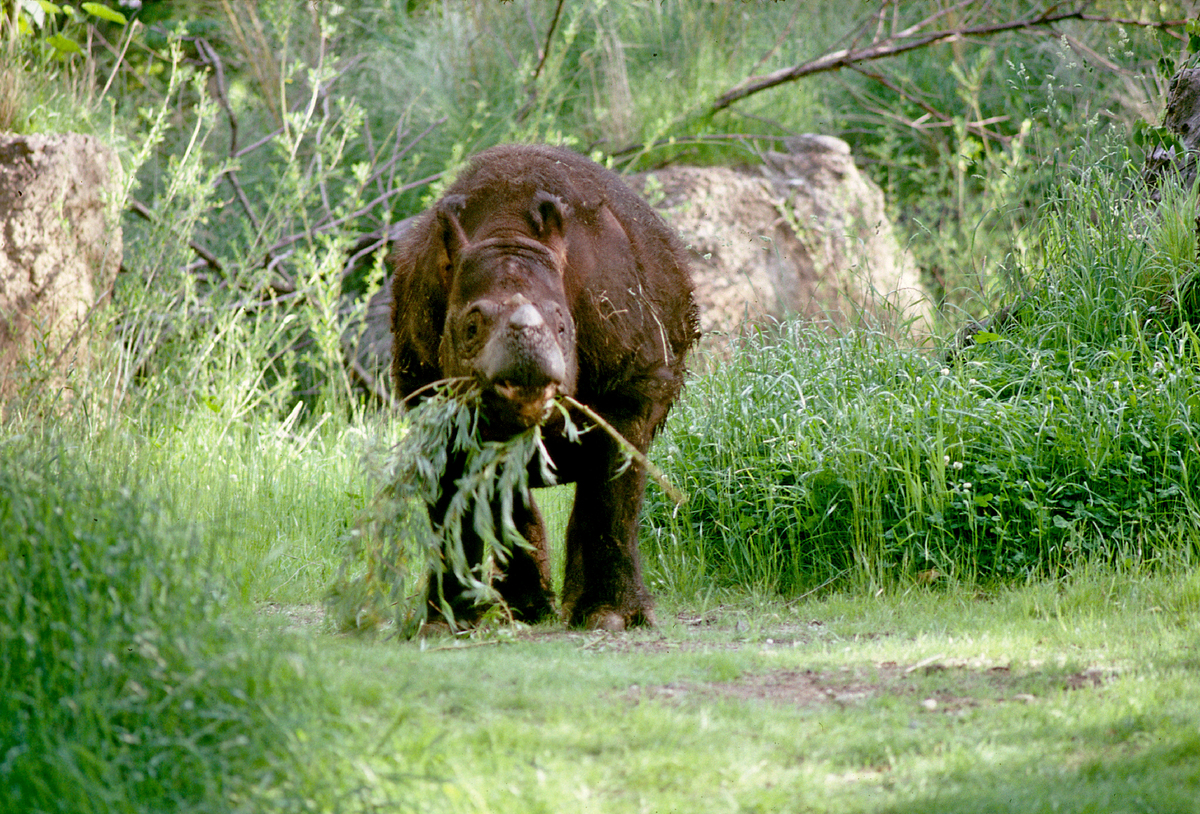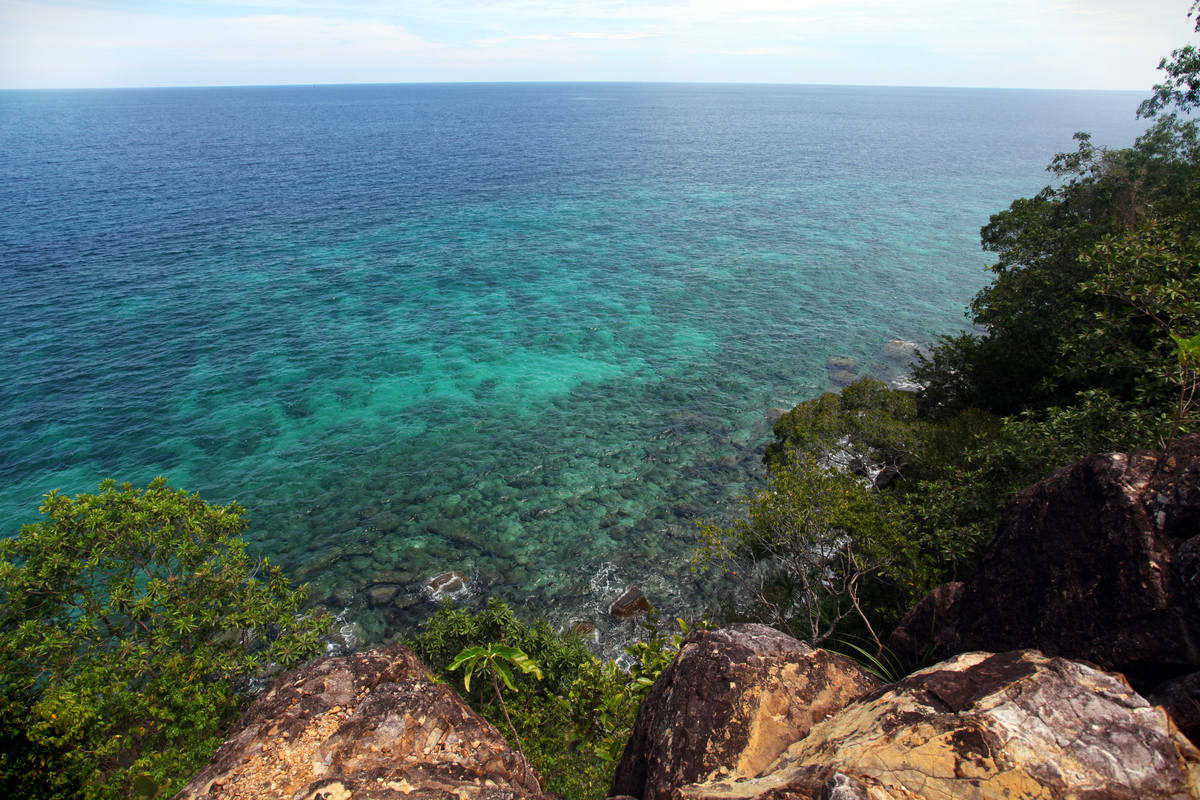Southeast Asian Archipelago
How Will We Get There?
To do this, we employ a handful of core strategies:
- Conservation of critically endangered charismatic megafauna (Sumatran rhinos, tigers, orangutans, elephants): WCS is working on Sumatra and Borneo to help improve protected area management and law enforcement, to mitigate human-wildlife conflict, and to conduct rigorous monitoring and research.
- Combatting illegal wildlife trade through the Wildlife Crimes Unit, an innovative partnership between Indonesia and civil society, which is responsible for the majority of arrests and convictions of illegal traders in Indonesia.
- Safeguarding the marine resources across the Coral Triangle through the establishment of networks of protected areas that have the support of local communities.
- Addressing drivers of deforestation and overexploitation of fisheries resources, by advising governments on improved policies and working with the private sector on ways to mitigate their impact on both terrestrial and marine ecosystems.
- Building the next generation of conservation leaders by supporting civil society, engaging the media, and providing training and support through research programs.
Why WCS?
1960s arrival
WCS has been working in Indonesia and Malaysia since the 1960s, and has projects on Peninsular Malaysia and four of the major islands (Borneo, Sumatra, Sulawesi, and New Guinea).
90+ percent
Over 350 test cases have been prosecuted by government law enforcement agencies based upon information provided by the Wildlife Crimes Unit, with a successful prosecution rate of over 90% and including the ten largest wildlife crime cases ever prosecuted in Indonesia. This is unparalleled in the Southeast Asian context, and the Wildlife Crimes Unit is the most successful example of an approach to combat illegal wildlife crime in the region.
Related News
-
June 20, 2023
Coral Triangle Day ‘OceansNeedActions’ 2023: CTI-CFF New Action Plan and Trust Fund to Strengthen Regional and Local Commitment
The Coral Triangle Initiative on Coral Reefs, Fisheries, and Food Security (CTI-CFF) is thrilled to announce the celebration of Coral Triangle Day 2023, marking the beginning of the long-term ‘OceansNeedActions’ campaign.
Read the story
-
June 5, 2023
Leading Global NGOs Launch SCeNe Coalition to Deliver Nature-based Climate Solutions in Southeast Asia
Eight globally recognized environmental and conservation non-profit organizations launched the Southeast Asia Climate and Nature-based Solutions Coalition (SCeNe Coalition) during Ecosperity Week, taking place in Singapore 6-8 June 2023.
Read the story
-
December 1, 2022
Scientists Decry Exploitation of Peatlands as Mining, Oil Exploration Continues with Few Restraints—World’s Largest Carbon Sinks and Refuges for Biodiversity at Risk
In the first-ever statement by scientists released today, 40 peatland researchers from 13 countries pressed for an increase in protections for peatlands, as economic development continues to threaten the integrity of these areas—which are rich in...
Read the story
View All News
Coral Triangle Day ‘OceansNeedActions’ 2023: CTI-CFF New Action Plan and Trust Fund to Strengthen Regional and Local Commitment
The Coral Triangle Initiative on Coral Reefs, Fisheries, and Food Security (CTI-CFF) is thrilled to announce the celebration of Coral Triangle Day 2023, marking the beginning of the long-term ‘OceansNeedActions’ campaign.
Read the storyLeading Global NGOs Launch SCeNe Coalition to Deliver Nature-based Climate Solutions in Southeast Asia
Eight globally recognized environmental and conservation non-profit organizations launched the Southeast Asia Climate and Nature-based Solutions Coalition (SCeNe Coalition) during Ecosperity Week, taking place in Singapore 6-8 June 2023.
Read the storyScientists Decry Exploitation of Peatlands as Mining, Oil Exploration Continues with Few Restraints—World’s Largest Carbon Sinks and Refuges for Biodiversity at Risk
In the first-ever statement by scientists released today, 40 peatland researchers from 13 countries pressed for an increase in protections for peatlands, as economic development continues to threaten the integrity of these areas—which are rich in...
Read the storySign Up for Email Updates
Get news from the field and learn about ways you can help Earth’s most threatened species.







